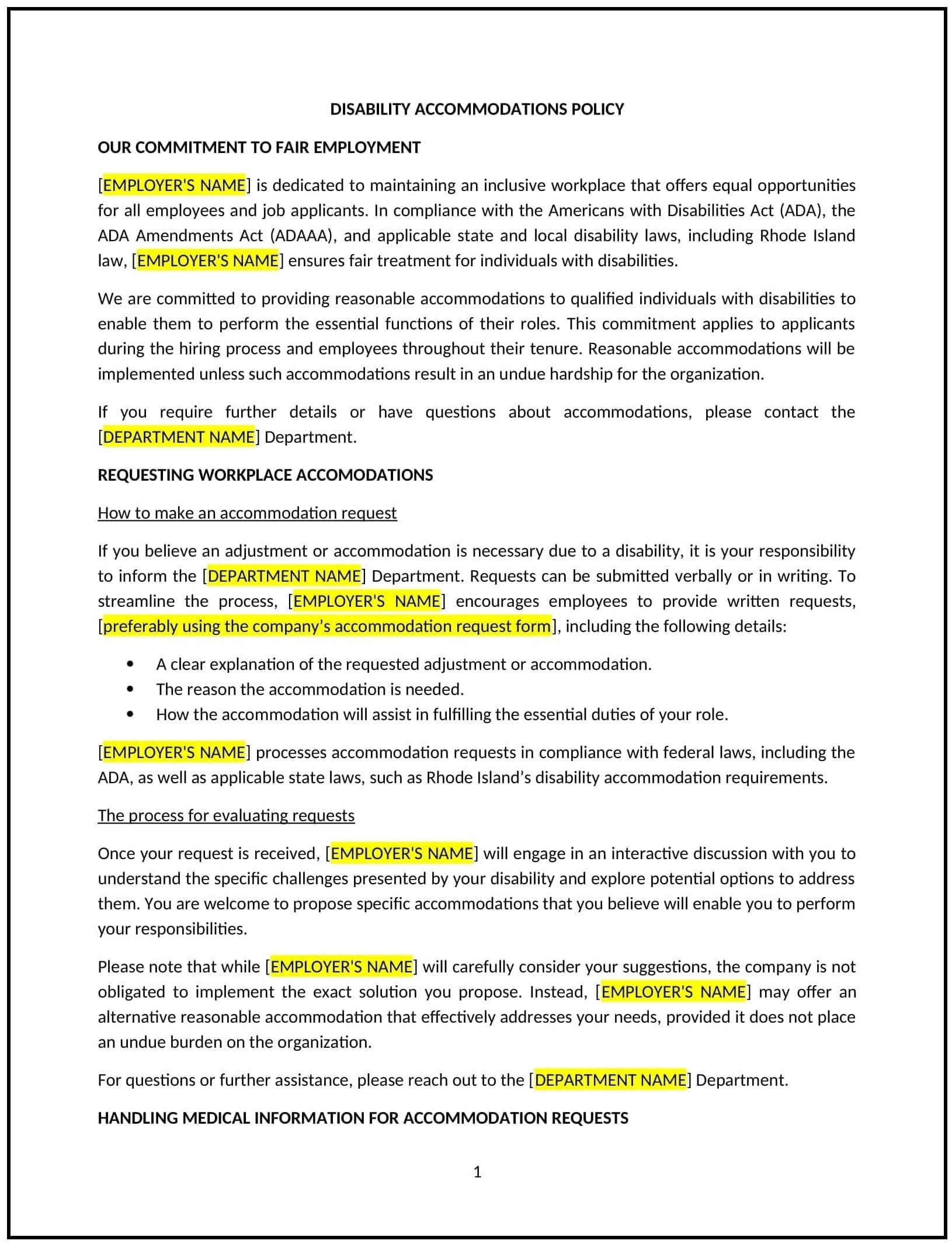Disability accommodations policy (Rhode Island): Free template
Got contracts to review? While you're here for policies, let Cobrief make contract review effortless—start your free review now.

Customize this template for free
Disability accommodations policy (Rhode Island)
This disability accommodations policy is designed to help Rhode Island businesses support employees with disabilities. It outlines procedures for requesting accommodations, evaluating needs, and implementing solutions.
By adopting this policy, businesses can promote inclusivity, comply with disability laws, and create a supportive work environment.
How to use this disability accommodations policy (Rhode Island)
- Define the process: Outline steps for employees to request accommodations.
- Evaluate requests: Describe how the business will assess accommodation needs.
- Implement solutions: Specify how accommodations will be provided, such as modified workstations or flexible schedules.
- Train managers: Educate supervisors on handling accommodation requests and fostering inclusivity.
- Review and update: Assess the policy annually to ensure it aligns with evolving business needs and legal standards.
Benefits of using this disability accommodations policy (Rhode Island)
This policy offers several advantages for Rhode Island businesses:
- Promotes inclusivity: Demonstrates a commitment to supporting employees with disabilities.
- Enhances employee satisfaction: Provides accommodations that help employees perform their best.
- Reduces legal risks: Aligns with disability laws and reduces the risk of non-compliance.
- Builds trust: Shows employees that the business values their well-being and contributions.
- Aligns with best practices: Supports adherence to disability accommodation standards.
Tips for using this disability accommodations policy (Rhode Island)
- Communicate the policy: Share the policy with employees and include it in the employee handbook.
- Provide training: Educate managers on handling accommodation requests and fostering inclusivity.
- Monitor compliance: Regularly review accommodation requests to ensure adherence to the policy.
- Address issues promptly: Take corrective action if accommodation requests are mishandled or denied improperly.
- Update regularly: Assess the policy annually to ensure it aligns with evolving business needs and legal standards.